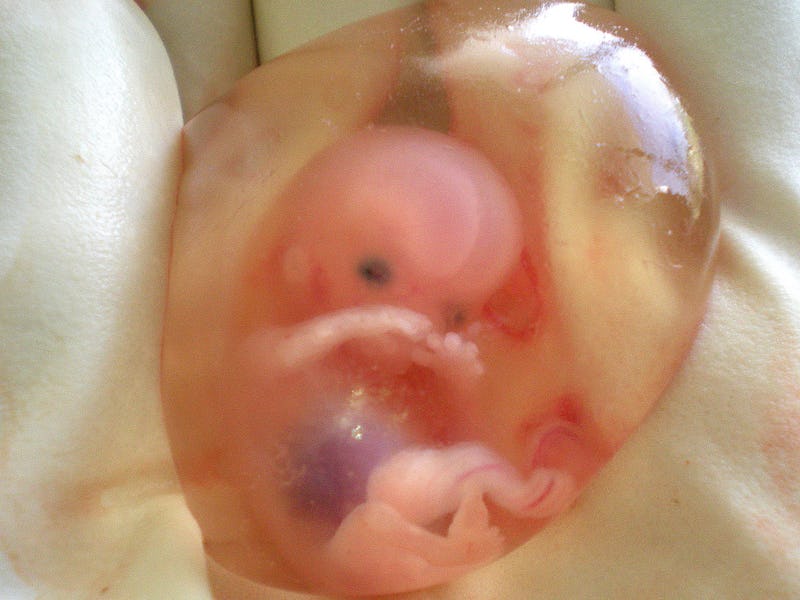Fetal Stem Cell Transplants May Ease Brittle Bone Disease
The new therapy offers a chance to treat developing fetuses with brittle bone disease.

British scientists plan to inject stem cells into developing human fetuses while they’re still in the womb to help treat a genetic disorder known as Brittle Bone Disease.
Doctors hope the stem cells — which have the potential to specialize into any kind of tissue in the body — will alleviate the symptoms of the very rare (6 to 7 per 100,000 worldwide) disease in babies. The mildest effects of the disease, which can be identified in fetuses by genetic screening, are a predisposition to potentially fatal fractures.
Some of the more severe effects are hearing loss, issues with the spinal cord and brain stem, and permanent deformities. Osteogenesis imperfecta, as the disease is officially known, is caused by defects in an individual’s DNA.
Normal stem cells with intact DNA carry the instructions for producing the tissue needed to make healthy bone and tooth tissue. Sourcing these from terminated pregnancies, the scientists hope that the developing fetuses receiving the injections will incorporate these cells. Because fetal immune systems are less developed, rejection is less likely to take place.
The two-year study, led in tandem by scientists at Sweden’s Karolinska Institute and Great Ormond Street Hospital in London, will begin in January, marking the first time a clinical trial of this nature has ever happened.
If successful, it could open up avenues for treating diseases like Duchenne muscular dystrophy and other bone disorders.